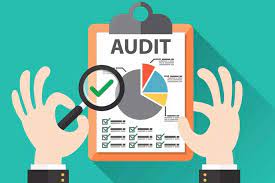Here is an overview of the timeline and the factors that can affect it:
Preparation Stage (2-4 weeks):
The complexity of the contractual service provider’s operations, the availability of required documentation, and the level of organization of the provider’s financial records.
Planning Stage (2-3 weeks):
The size and complexity of the contractual service provider’s operations, the availability of key personnel and management for discussions, and the need to understand the provider’s internal control systems.
Fieldwork Stage (2-6 weeks):
The volume of transactions, the geographical dispersion of the provider’s operations (if applicable), the cooperation of the provider’s staff during the audit, and the identification of any significant audit findings requiring further investigation.
Data Analysis and Report Preparation (2-4 weeks):
The complexity of data analysis required, the need for additional information or clarifications, and the availability of audit team members for report drafting and review.
Review and Approval (1-2 weeks):
The number of levels of review within the audit firm, the extent of discussions and clarifications required, and the need for additional evidence to support findings.
Finalization and Reporting (1-2 weeks):
So, The timeliness of receiving any pending information, the degree of adherence to accounting and auditing standards, and the need for further consultations with experts if complex accounting treatments are involved.
Completion (Final Week):
Any outstanding issues that need resolution, the timely issuance of the audit report, and the completion of required administrative tasks.
Factors that can affect the overall timeline:
Complexity of Operations:
The more intricate and diverse the contractual service provider’s operations are, the longer it might take to comprehend and audit them thoroughly.
To visit: https://www.mca.gov.in/
Quality of Documentation:
Inadequate or disorganized financial records can prolong the time needed to gather, understand, and verify the information.
Cooperation of Provider’s Staff:
The willingness and responsiveness of the contractual service provider’s staff in providing necessary information and clarifications can significantly impact the pace of the audit.
Volume of Transactions:
A high volume of transactions may necessitate more time for the auditors to both review and verify the data.
Regulatory Requirements:
Adhering to specific regulatory or legal requirements unique to the industry in which the provider operates can add complexity and time to the audit process.
Audit Findings:
The discovery of complex issues or discrepancies that require further investigation can extend the timeline as additional work is needed to resolve them.
Availability of Key Personnel:
If key individuals involved in the audit process, both from the audit firm and the provider, are not readily available, it can lead to delays.
Changes in Scope:
Any adjustments to the audit scope during the process can result in additional time requirements.
However, It’s crucial to understand that these timelines and factors serve as general guidelines, It may differ depending on the unique circumstances of the audit engagement as well as the resources available to the audit firm and other individualized factors. So, Effective communication and coordination between the audit firm and the contractual service provider can help to manage expectations and streamline the audit process.

